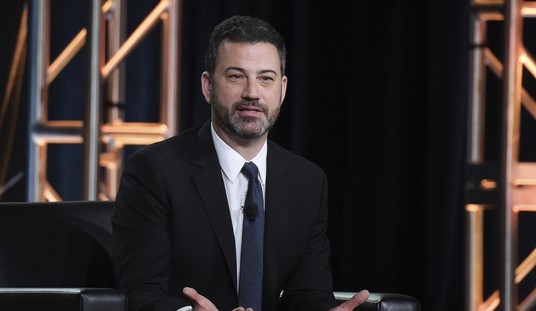Now that Barack Obama is on a straight path to the Democratic nomination, his foreign policy insinuations have come under greater scrutiny. Where they have not been found indistinguishable from Hillary Clinton’s, they’ve been judged antithetical to his “change” doctrine, unless Kissingerian realpolitik represents a revolution in global thinking.
On Cuba, for instance, Obama’s courage to speak the unspeakable about revising the U.S.’s sclerotic cold war policy is now matched by his willingness to pose as just another establishment candidate when it comes to the most sustained trade embargo in modern history.
He may have published an op-ed in the Miami Herald in late August of last year arguing that the long-standing travel ban on Cuban-Americans, and the ban on allowing them to send money back to relatives on the island, should be lifted. And he may have then listed Castro as one of the nefarious heads of state he wouldn’t mind negotiating with as president, a hypothetical for which he was lambasted by Clinton as naïve and unready for the Oval Office.
But in the wake of the caudillo’s resignation, Obama’s stance on the trade embargo, which has been in place since 1962 and represents the most influential aspect of our non-engagement with Cuba, is a reaffirmation of the status quo, best defined as “Wait and see what Havana does first” – just like Clinton.
Compare what Clinton said yesterday:
I would say to the new leadership, the people of the United States are ready to meet you if you move forward towards the path of democracy, with real, substantial reforms.
— to what Obama said:
If the Cuban leadership begins opening Cuba to meaningful democratic change, the United States must be prepared to begin taking steps to normalize relations and to ease the embargo of the last five decades.
Also, as reported here Monday, Obama’s foreign policy adviser Zbigniew Brzezinski led a RAND Corp. delegation last week to Syria to meet with dictator Bashar al-Assad and his Baathist associates. Traveling with Brzezinski was one Hassan Nemazee, Clinton’s national finance chairman — a double billing that earned the censure of the New York Sun, which broke the story and cited Brzezinski’s wistful comment to state-controlled Syrian media that his entourage was engaged in “talks [that] dealt with recent regional developments, affirming that both sides have a common desire to achieve stability in the region, which would benefit both its people and the United States.”
There was no indication [the Sun editorialized] in respect of whether Mr. Brzezinski queried the Syrian regime, officially listed by our own State Department as a terrorist-sponsoring state, about the assassination of Hezbollah’s Imadh Mugniyah, who was slain by a car-bomb as, according to the Lebanese Broadcasting Channel, he was leaving a ceremony at an Iranian school in Damascus.
Finally, Samantha Power, another of Obama’s foreign policy consultants, was interviewed by Salon this week to promote her new biography of murdered U.N. envoy Sergio Vieira de Mello. She told her questioner that “The next president is really going to have to walk and chew gum at the same time, because no long-term peace in the Middle East is possible until we get some kind of modus vivendi in the Arab-Israeli situation.” Power also suggested that forced “ethnic relocation” may be necessary in Iraq to forestall a humanitarian crisis.
To this, the Iraqi exile behind Iraqpundit riposted:
“[T]he last time I looked, the Palestinian leadership was engaged in a fratricidal war for control of the Palestinians. The lives of all other Arabs can’t be put on hold until the seemingly intractable Arab-Israeli impasse is resolved. Nor, as Power believes, can the other pressing issues of the region – Iran’s nuclear dreams, Hezbollah’s “divine” militarism, Syria’s foreign policy of assassination – continue to wait for that golden day. I want to see Palestinians living happily and at peace in their own country, but I am no longer willing to sacrifice the future well-being of Iraq.”
Reason‘s Michael Young was amused:
“So here’s the plan from the author, incidentally, of a book on genocide. Accept the realities imposed by ethnic cleansing; give plenty of money to several of the neighboring countries that have been responsible for sustaining the fighting in Iraq; and pay off displaced Iraqis so that the U.S. can feel less guilty about abandoning them to their sad fate.”
And debunking Power’s claim that “[i]f we’re ever going to actually put in place multilateral measures to contain Iran, the only way we’re going to do that is if we do it in a more united way with our allies,” Commentary‘s Noah Pollak writes:
The real swindle here is Power’s implication that the U.S. has yet to pursue a multilateral strategy for dealing with the Iranian nuclear program, a fascinating rewriting of history. Between 2002 and 2006, the Bush administration delegated Iran diplomacy to the EU-3 (France, Germany, and the UK), specifically in pursuit of the cultivation of an international consensus against Iran’s nuclear program. The EU-3, working extensively through the IAEA – another of those international bodies that Power believes has been sidelined by the Bush administration – demonstrated nothing more than the ease with which it could be repeatedly manipulated and thwarted.
Michael Weiss is the New York Editor of Pajamas Media.









Join the conversation as a VIP Member